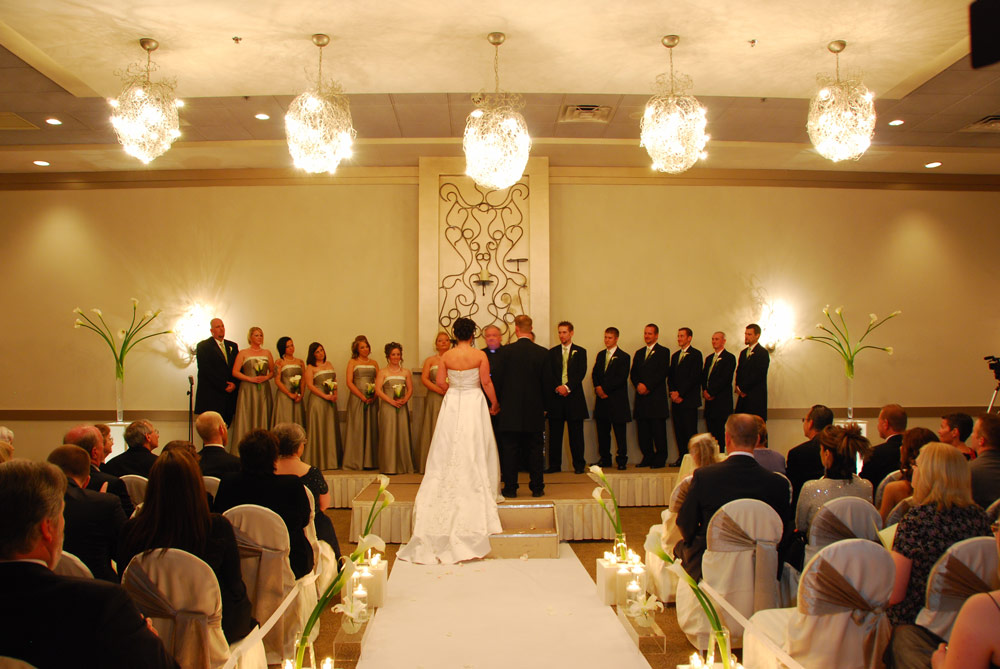As you and your fiance begin the wedding planning process, you’ll find yourselves inundated with a barrage of decisions that need to made. It’s part and parcel of planning a wedding. You need to decide on a suitable venue, choose the members of your wedding party, compile your guest list, hire caterers, photographers, and entertainers. The list seems nearly endless. But one of the most important decisions you will have to make, and one that is rarely talked about, is choosing who will officiate at the wedding ceremony itself.

Choosing a wedding officiant is often more complicated than couples think, so lets look at a few tips to help make the decision process go a bit more smoothly.
First Things First
The first thing you need to do as a couple, is to take some time to discuss what you both want in a wedding officiant. The choice of who will officiate at your wedding should be collaborative, and you should both have an equal input. Do you want a religious ceremony? If so, is there a preferred member of the clergy that you can both agree on?
Perhaps you would both rather opt for a secular ceremony, in which case you may have a deeper pool of potential officiants from which to choose. These basic question will help guide you along the path to finding the right officiant for your wedding ceremony.
Choosing a Religious Officiant
If you are both active members of your church or synagog, you may already have a member of the clergy that you would like to officiate at your wedding. If not, you will both have to discuss which denomination best matches your beliefs, and choose a house of worship to consult about your wedding plans.
Different denominations are likely to have differing wedding styles, and you will want to talk to a few clergy members to find the ceremony that best suits your style and beliefs. Here are a few key questions to ask when considering a religious officiant for your wedding:
- Will they perform the service at a venue of your choice?
- Will they perform the service even if you are not currently members of their church or synagog?
- Can you customize the ceremony? Are you allowed to write your own vows?
- Are non-religious friends and family allowed to participate in the service?
- Will you be required to attend religious classes or counseling prior to the wedding?
- What fees or donations are required? (Yes, many members of the clergy charge a fee, or expect a donation, to perform the wedding service)
Choosing a Secular Officiant
Many couples choose a secular wedding officiant to perform the ceremony, particularly if they are not currently members of a church or synagog. Choosing a secular wedding officiant broadens your choices, but there are still some important points to consider.
- Justice of the Peace – Choosing a Justice of the Peace to officiate at your wedding puts you in control of the ceremony. In most cases, this will allow you to write your own vows, and to include whatever family and friends you like in the service. When you apply for your marriage license, the county clerk should be able to give you a list of local Justices who perform wedding ceremonies. Contact as many Justices in your area as you need, until you find the one that you both feel comfortable with. Interview them just as you would any other vendor providing a wedding day service. Again, be sure to ask about costs up front, as you will be expected to pay a fee.
- A Friend of Family Member – Having a friend or family member officiate at your wedding has become a popular option for many couples. It helps to create a more inclusive wedding experience, and adds a distinct personal touch to the ceremony itself. In some states, friends or relatives can apply for a one day designation as a Deputy Commissioner of Marriages. The designation is only good for the single ceremony, and must be cleared through the Clerk of Courts. There is also a fee to receive the designation. Check with your County Clerk’s office or Secretary of State’s office to see if this is an option. Another option is to have your secular officiant get ordained via the internet through the Universal Life Church. This is a non-denominational church, and ordination is relatively quick and easy. It should be noted, however, that not all states recognize the Universal Life Church, so you should check with your County Clerk’s office to make certain that your marriage will be recognized and considered legal in your state.
There are many decisions to be made when planning a wedding, and one of the most important is the choice of officiant. Early in the wedding planning process, take some time to discuss what kind of ceremony your want (secular or religious) and begin the search for a suitable officiant. You may have to interview a few candidates before you find the perfect match, but these few tips should help the process go more smoothly, and will ensure that your find a wedding officiant who will help to make your wedding a day to cherish and remember for years to come.





